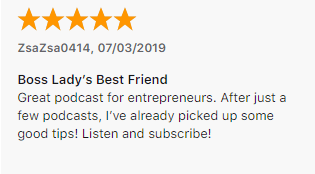The Fast-Track Woman Podcast: Episode #55
How to Recession-Proof Your Business with Sigrun
Click the Play Button + Listen Below.
Meet Podcast Guest, Sigrun.
Sigrun is on a mission to accelerate gender equality through female entrepreneurship. She is the leading business mentor for female online entrepreneurs in Europe, TEDx speaker, and host of the Sigrun Show podcast. Originally from Reykjavik, Iceland, she has spent more than half her life outside her home country; in Germany, United Kingdom, and Switzerland. Since she was a young girl she’s always been drawn to leadership roles, so despite having zero business background nor the education she made a life-changing phone call and asked to become the CEO of a software company shortly after finishing her master’s degree in architecture – and she got the job!
Ten years, another three master’s degrees, and several CEO roles later, Sigrun found herself in Switzerland with her newfound love but sick and unemployable. Her dream was to be location independent so she could spend time in Iceland and Switzerland, travel the world, and take care of her health. So in 2014, Sigrun started her online business and within 4 years she built a 7 figure business helping women from all over the world. Her signature program is SOMBA, Sigrun’s Online MBA, and her other programs are SOMBA Momentum, a group coaching program, VIP Mastermind, a mastermind program, and the Red Circle, the first million dollar mastermind for female entrepreneurs in Europe.
Sigrun’s motto is: Be Inspired. Think Big. Take Action.

About this Podcast Episode.

In this podcast episode, Terra Bohlmann interviews, Sigrun Gudjonsdottir, who is the leading business mentor for female online entrepreneurs in Europe and TEDx speaker. Sigrun is also the host of "The Sigrun Show" podcast. Terra and Sigrun talk about ways that women business owners can recession-proof your business. Sigrun shares her own journey of how she went from corporate executive to now a 7-figure business owner. If you are looking to find out the success secrets on how you can build an online business, you'll love this podcast episode.
Ready to create your 5-year plan for FREE? Visit TerraBohlmann.com/workbook to download your free 5-year planning workbook.
Resources, Tools, and Links Mentioned in this Episode.
- sigrun.com
- TerraBohlmann.com/podcast
- Apply for your complimentary Fast-Track Session with Terra HERE.
Read and Download the Transcript for this Episode.
Interact More with the Podcast.
Great Reviews Make My Heart Sing.

Much appreciation from one happy Podcast Host!
Are you subscribed to my podcast?
If you’re not, you should subscribe so you never miss an episode.
And...I invite you to take it a step further + leave a 5-Star review.
To give a review, click the image and select “Ratings and Reviews” and “Write a Review” on iTunes.
Share a takeaway what you learned and let other women entrepreneurs know why they should listen to the podcast.
Reviews help other women entrepreneurs find my podcast and I truly enjoy reading them.
It takes a community of like-minded women to help other like-minded women succeed.
(Oh, by the way, I love to do shout-outs on future episodes and you just may hear your name!)




